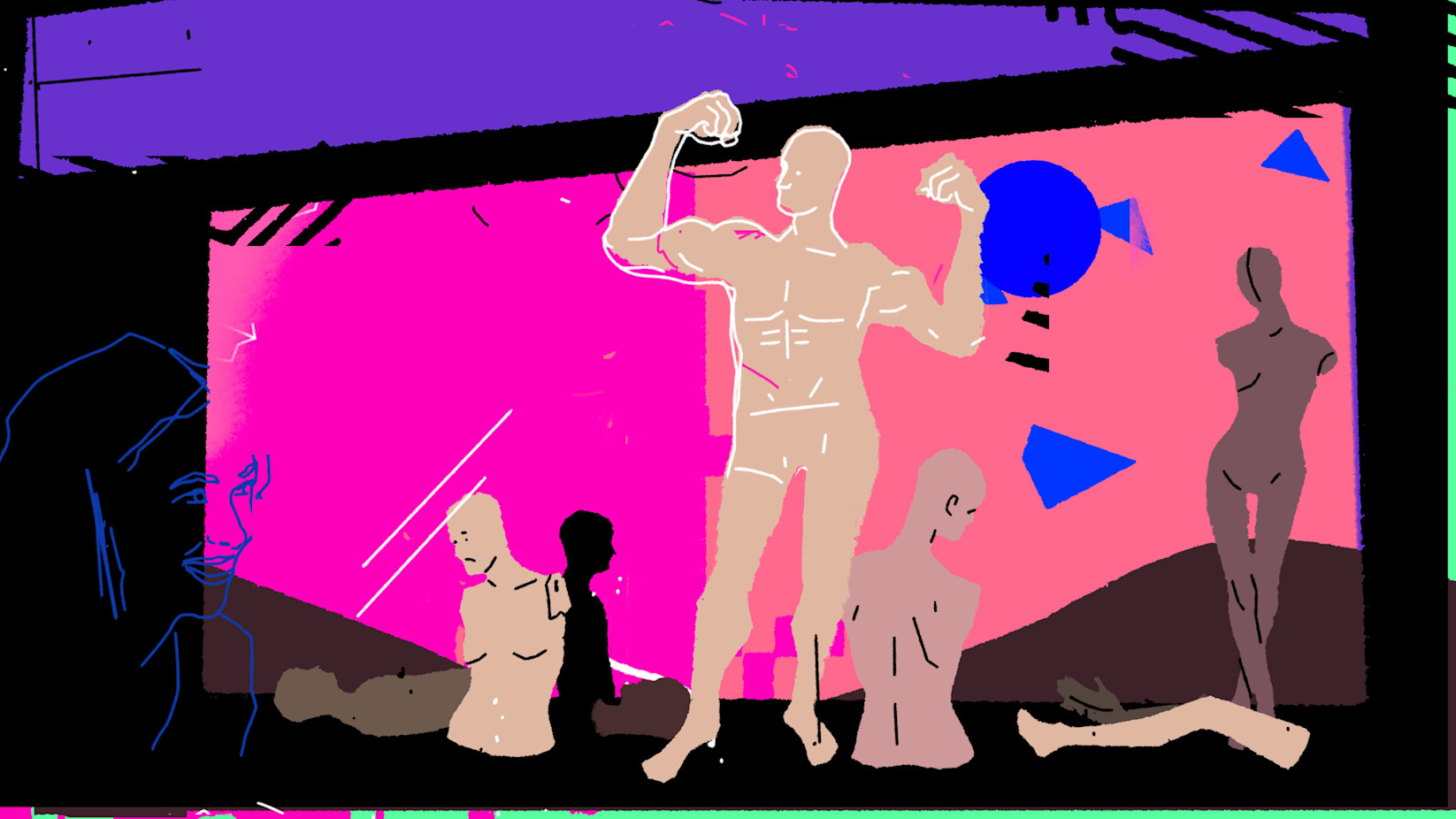Back in March 2020, when the very first lockdown was announced in my city, I went to the grocery store with my then-one-year-old daughter for provisions. No one was wearing a mask because no one knew to wear them yet. While I stood in a very long line holding diapers and antibacterial wipes, a wild-eyed woman with a cart full of toilet paper rolls and enough laundry detergent to clean a soccer team’s clothes for a year frantically cut in front of me. It was tense, and it’s weird to recall. Memories of the earliest pandemic days are easily forgotten after 20 months of mask mandates, lockdowns, millions of deaths, vaccines, and multiple strains of COVID-19, but they are also when our collective anxiety first spiked.
With the initial lockdown, independent business owners with storefronts faced closures and hard choices they were largely unprepared for. Those with ecommerce stores already set up were slightly better prepared, but they still had supply-chain, inventory, safety, and staff concerns keeping them up at night. “It was challenge after challenge,” says Alyssa Kerbel, owner ofmini mioche, a Toronto-based clothing store for children.
“Running a business and being an entrepreneur already makes you feel like you're treading water, and when the pandemic hit, it was like someone constantly pushing your head down, and you have to keep fighting harder to stay afloat.”
Early on, there was a sense we were facing a global event that might immobilize the supply chain and cause widespread food and goods shortages. That didn’t happen to the scale we had feared, but the frenzy it caused, combined with job loss, business closures, and the fear of catching a deadly virus, spun many into anxiety spirals that were only temporarily quelled by governments deploying safety nets to maintain some kind of economic order. Not only did living in a perpetual state of worry, largely at the mercy of an invisible illness and the safety-minded rules different governments implemented, make independent business owners stressed, it also shook their mental foundations. During the pandemic,career coach and Careergasm founder Sarah Vermunturged her clients to release any shame they might have around experiencing mental health struggles because “these days it's the norm, not the exception.”
Vermunt is correct. According to Bupa Global’s Executive WellBeing Index,78 percent of business leaders have experienced poor mental healththroughout the pandemic. Research compiled by Statista at the end of 2020 showed that 4 in 10 U.S. adults developedsymptoms of anxiety or depression. This is not to say that people were prioritizing their mental health prior to the pandemic; in fact, the mental health of business owners was decidedly not great in the year leading up to it. A2019 Canadian Mental Health Association study found that 62 percent of business owners felt depressed at least once a week. Female-identifying entrepreneurs that had newer enterprises, less revenue, and/or fewer employees, were more likely to report mental health issues, and nearly half of them said mental health interfered with their ability to work.
Vermunt witnessed firsthand the impact the pandemic had on the independent business owners she works with. “I have many clients who've had to take sick leave,” she says. “Their mental health got so bad that their bodies started shutting down and they had to stop working.”
Pandemic pivots
For Ben Amanna, owner of boxing apparel companyBoxraw, the initial scramble to figure out how to operate remotely was stressful and sleep-deprived, but ultimately productive. “When [the lockdown] first got announced it was a Friday and we stayed in the office until maybe four or five in the morning just trying to strategize how to approach the next however many months,” he says. “One campaign we ideated was calledOne Way Forward, which is about how people need to push through, rather than just dwelling on what they can't control right now.”
Having pandemic lockdowns produce a forced sort of “live in the moment” style of business is the sunniest way to look at the endless obstacles of the first few months. A survey by theCanadian Federation of Independent Business (CFIB)found that almost half of all small business owners surveyed suffered from mental health issues because of the pandemic, and they pointed to working significantly longer hours, mostly to launch, plan and maintain ecommerce sites.
Aaron Spivak, whose weighted blankets companyHush Blanketsbegan booming early in the pandemic thanks to people being at home and seeking comfort, was spared the worry of losing business, but he wasn’t spared the stress. “It was good because we saw an increase in sales,” he says. “But it was bad because we weren't prepared for it.” Keeping up with demand proved near impossible. “It was hard from a supply chain standpoint because we sold out and it became increasingly difficult to get products because everybody else was sold out too.”
Kerbel, whose soft, locally made, eco-conscious clothing for children was in demand once people started working and schooling from home, faced similar challenges to Spivak, with the added stress of having to make some hard decisions about products and what to do about the company’s brick and mortar stores. “At first, we changed the whole retail model for our Queen Street West store to a showroom concept, and initially re-opened the Distillery District store as an outlet location,” she says of her Toronto stores. “We decided not to continue selling products that were not under the mini mioche house brand, and then we made the decision to permanently close our Distillery District and Los Angeles stores. That was about simplifying."
Keeping things simple was what many business owners were striving for once their previously office-based workplaces moved entirely online. “All of the feedback loops, which worked before due to face-to-face interaction, were suddenly gone,” says Boxraw’s Amanna of his overnight remote office setup. “We recognized the need for proper reporting lines, so we use a messaging service called Telegram now.” Going fully remote also forced him to reassess his own role, redefine what his objectives were, and ultimately made him realize that he needed more help. “We went into the pandemic with 16 employees and we left the first lockdown with 32,” he says. “I realized I was a huge bottleneck in the company. It's hard to let go, but it was a necessity.” Proper onboarding, regular check-ins, and guidelines for staff to follow helped Amanna extract himself from being involved in every aspect of the decision-making process.
Similarly for Kerbel, the pandemic pushed her to make changes she’d long been contemplating. “I think the pandemic was partly an opportunity to reevaluate our business as a whole, to decide what makes sense and what's maybe not making sense,” she says. “And it was an opportunity to make those changes because everything was changing.” She also recognizes the incredible gift of her brand being in demand at a time of such massive economic instability. “We were in a fortunate position that a lot of our customers continued to support us and really just moved their purchasing to our ecomm,” she says. “Our product is very comfy and conducive to being at home all the time.”
But it wasn’t just the comfort of the clothes that drew customers to their site. In the first months of the pandemic, people were forced to confront their buying habits, andthe urge to buy and support local, environmentally-friendly businesses was strong. “The pandemic helped people to be more mindful about the types of businesses they’re supporting, and the values of those businesses,” Kerbel says. “Our clothes are locally made [in Toronto], with sustainable materials and we have a lot of gender-neutral clothing.”
理解谁能prioriti日益扩大的差距ze mental health care
People weren’t only shopping more mindfully—with multiple lockdowns, our once full lives became decidedly more inward-facing. Without the distraction of busy lives in the way, the injustices around us became harder to ignore. The murder of George Floyd by police officers in June 2020 ignited a movement that goes beyond honoring and preserving the sanctity of Black lives. It also gave us the opportunity to examine the myriad of systemic ways Black, Indigenous, racialized, and other marginalized groups are left out and oppressed. It is of little surprise that the pandemic has disproportionately impacted the people that were already marginalized. According to theNational Bureau of Economic Research, the pandemic caused temporary or permanent closures of minority-owned firms in the U.S. at higher rates than nonminority firms. It estimates that between February and April of 2020, the number of actively working, self-employed Black business owners decreased by 41 percent, the largest change of any racial group included in the study. Latinx and Asian workers experienced declines of 32 percent and 26 percent, respectively, but self-employed white workers only saw a 17 percent drop.
Not only did these groups lose more business, but their chances of recovery are also grimmer. A 2016 survey on racial trends and access to capital by theKauffman Foundationfound that racialized people often have more difficulty getting startup funding, with over 70 percent of new Black, Hispanic, and Asian owned-businesses needing to rely on personal funds and family savings as startup capital. White entrepreneurs face no such barriers and are the most likely of any race to secure a business loan from a bank.

Worldwide,the pandemic has led to millions of job losses with low-income families hardest hit. Since it started, 46 percent of low-income adults in the U.S. have struggled to pay their bills, and 32 percent have had a hard time making rent or mortgage payments. Researchers made a connection between employment status and mental and physical health, and they found that depression and anxiety are three times as likely in those with low incomes. They also noted that joblessness affects mental health most extremely in countries with gross income inequality and weak unemployment protection. Gender inequalities have also worsened, andaccording to the UN, COVID-19 continues to widen the gender poverty gap worldwide and is expected to push approximately 47 million more women and girls into poverty, bringing the total number to 435 million.
While these figures might make the mental struggles of those from whom the pandemic proved good for business seem trite, they also highlight an important point: many who run successful independent businesses have the means to focus on their mental health. For those struggling to bring in revenue, mental health is simply not a priority because it can’t be.
Government subsidies helped those who lost income, or their jobs, or otherwise couldn’t work during the pandemic, but not everyone was eligible. What’s more, even if they were, being able, or barely able, to pay one’s bills, while helpful, does not equate to good mental health. Interestingly, Canada, the U.S., and the UK all have their own government-funded mental health portals. Canada’sWellness Together, created in response to “an unprecedented rise in mental health and substance use concerns due to the COVID-19 pandemic,” acts as a resource for those going through acute mental health problems, and mainly those who need crisis counseling. It also offers online courses and progress trackers. In the States,Mental Health.Govand the National Institute for Mental Health offer similar resources and crisis counseling.Mental Health UKtakes the most holistic approach, combining information, peer and individual support, and financial advice. Counseling is covered by the NHS in the UK, but Canada and the U.S. both lack covered access to regular counseling or therapy that enables patients to develop trusting relationships with mental health professionals who can monitor their progress.
It is not enough to give already anxious, depressed, and financially fragile people a few resources and crisis counselors and let them fend for themselves the rest of the time. Further, without mental health services offered as a main component of the healthcare system, the stigma around accessing them is only reinforced.
How mental health care positively impacts business goals
Kerbel指出,通常情况下,在企业家,mental health is rarely discussed, mainly because of optics. “Entrepreneurship is scary at the best of times, and many of us feel like we have to hide that and pretend like everything's perfect all the time,” she says. “You don't want to share your worries with people, so you're in your mind having anxiety about it, and that's where I think a lot of entrepreneurs struggle with mental health. They don't let it out.” To help lighten her own mental load, Kerbel participates in a Mastermind group of fellow entrepreneurs that meets monthly which she credits with giving her a sense of community and valuable perspective. She also prioritizes self-care and tries not to catastrophize when things don’t go according to plan. “If something goes wrong, it's not a direct representation of you as a human being,” she says. “It's just something that went wrong.”

Spivak points out that the variety inherent in being in business for oneself, while exciting, can sometimes be a double-edged sword. “It's definitely difficult to stay level-headed at all times because every single day is different in business,” he says. “You can get down on yourself if you have a bad week, or the business has a bad week, or if you launch a product that no one buys—there are a lot of things that happen in business that get in your head.”
Vermunt urges her clients to keep mental health a top priority, especially right now, not just for the betterment of their own lives, but for long-term business planning, too. “Sure, a business can run successfully for a short while if the person at the helm isn't well mentally, but it's not sustainable long-term,” she says. “You can't run a business without good mental health. You'll start making bad decisions or careless mistakes or you'll burn out and be unable to work at all.”
For Amanna, mental health has been something he’s both consciously and unconsciously worked on since discovering boxing at age 12, initially using it as a way to stick up for himself against bullies. “I quickly recognized that boxing wasn't just about trying to punch people in the face,” he says. “It taught me the values of discipline, mindfulness, and love.” The focus, stamina, and agility required of a boxer can only be fully realized if that boxer is mentally healthy. To go the (mental) distance, Amanna relies on daily transcendental meditation sessions and journaling for perspective, mental clarity, and problem-solving. “Whenever I have a problem, I tap into a journal,” he says. “You can think at 1000 times the rate you can type. Typing forces you to rationalize the situation.” He encourages his staff to journal, too.
有很多组件,进入一个业务owner recovering from a period of significant stress, especially one as unprecedented as the pandemic. Finding community, working out, journaling, and meditation are all wonderful ways to improve mental health, and so is therapy, which Spivak has relied on for almost two years now. “I do quite a lot of therapy and it's become an area where I can unlock breakthroughs,” he says. “A lot of what goes on in our minds every day is just our own story of what we think is reality.”
Vermunt gives therapy a ringing endorsement as well. “I've been quite vocal about encouraging many of my clients to enlist the help of a therapist,” she says. She also notes that people often come to her feeling down on themselves, and many times, it’s because their hearts, minds, and careers aren’t in sync. “I like to think of having a good career as two parallel tracks,” she says. “One is figuring out what you like and going after it, and the other is developing self-awareness, learning what your blind spots are, and getting out of your own way. That's the track that people often forget about, but it's just as important.”
The small business owners I spoke with all agreed that lessons learned during the pandemic have ultimately given them added agility, and thriving during 20 months of extraordinary circumstance has been a blessing. If COVID-19 has taught us anything, it’s to count our blessings because no one really knows what the future holds. All we can do right now is remain adaptable, get vaccinated, wear our masks, and hope for the best.






